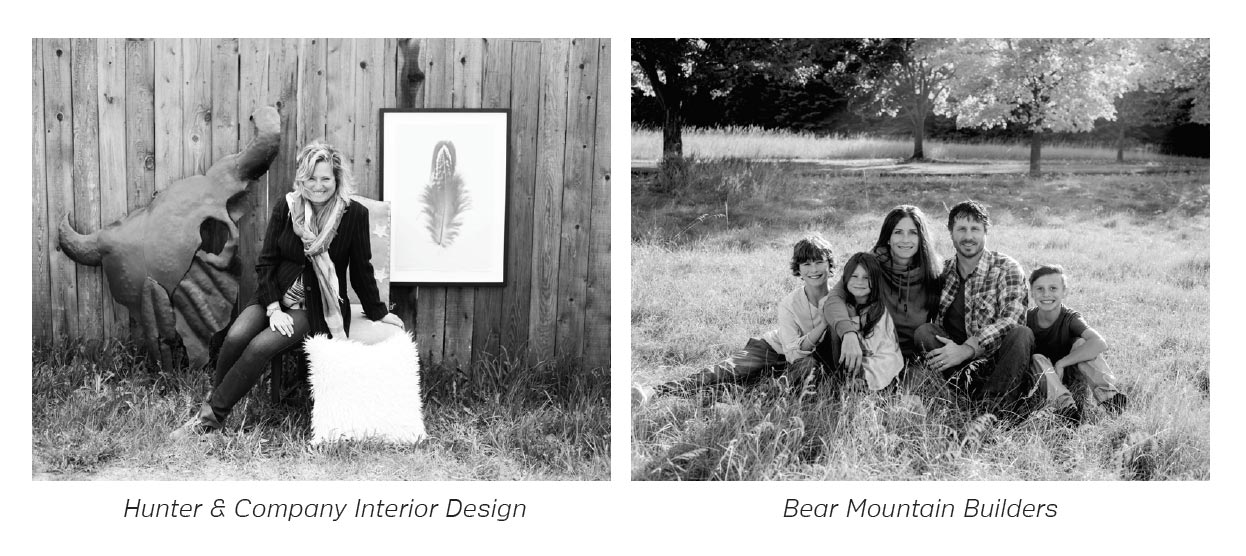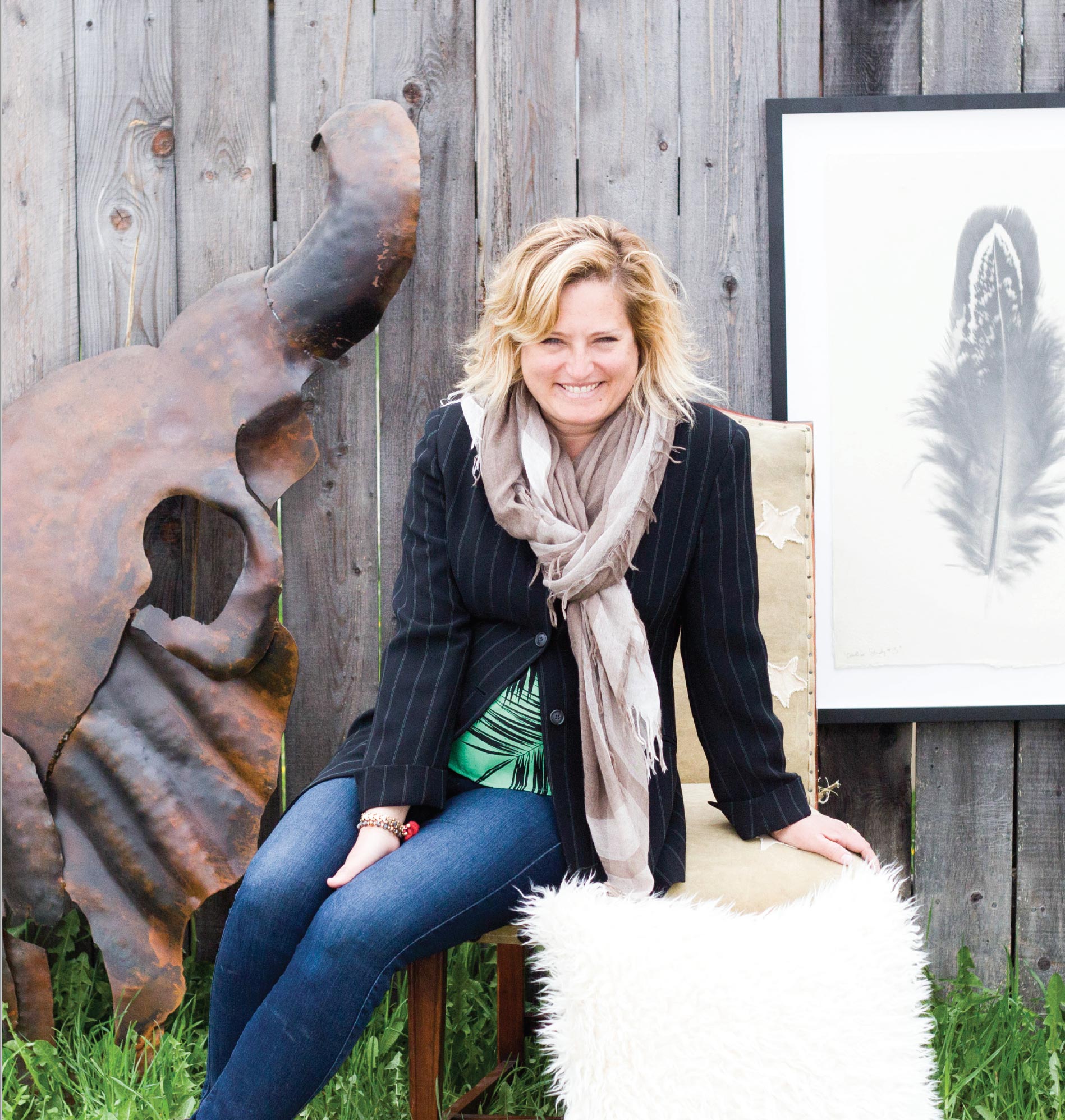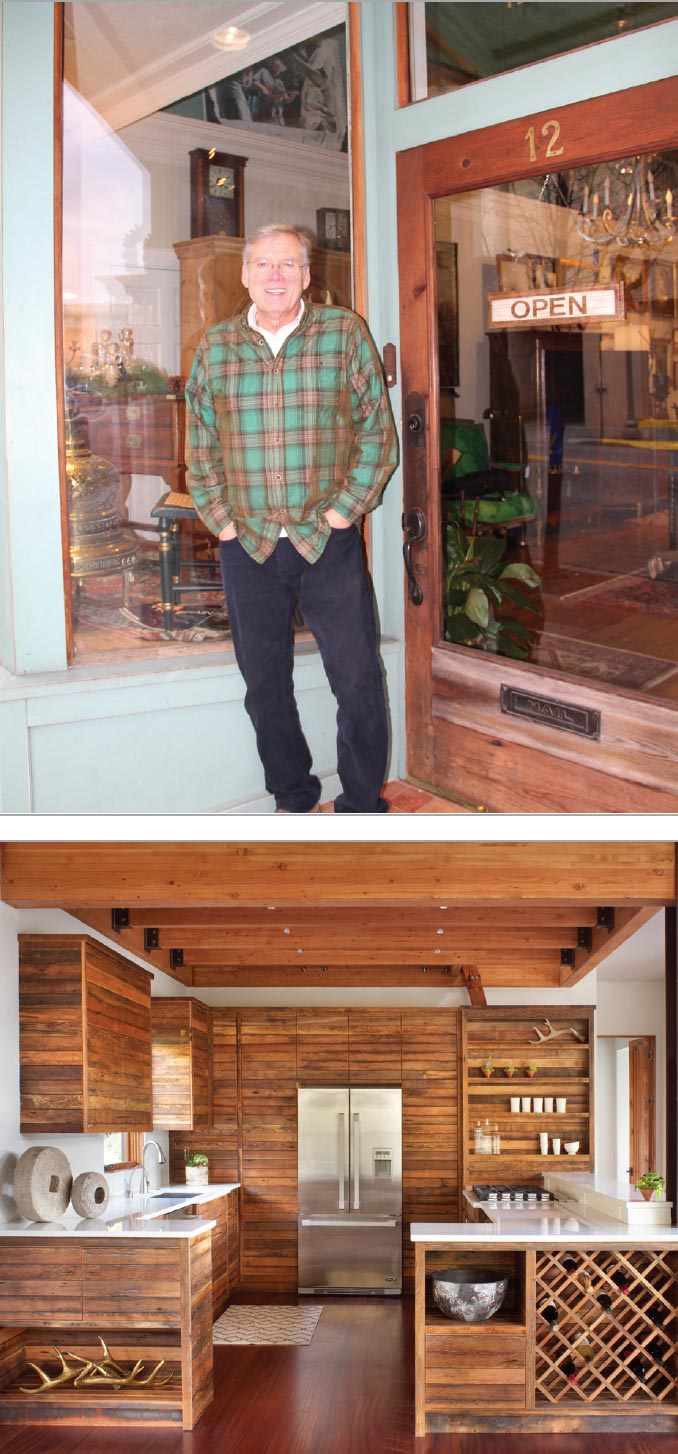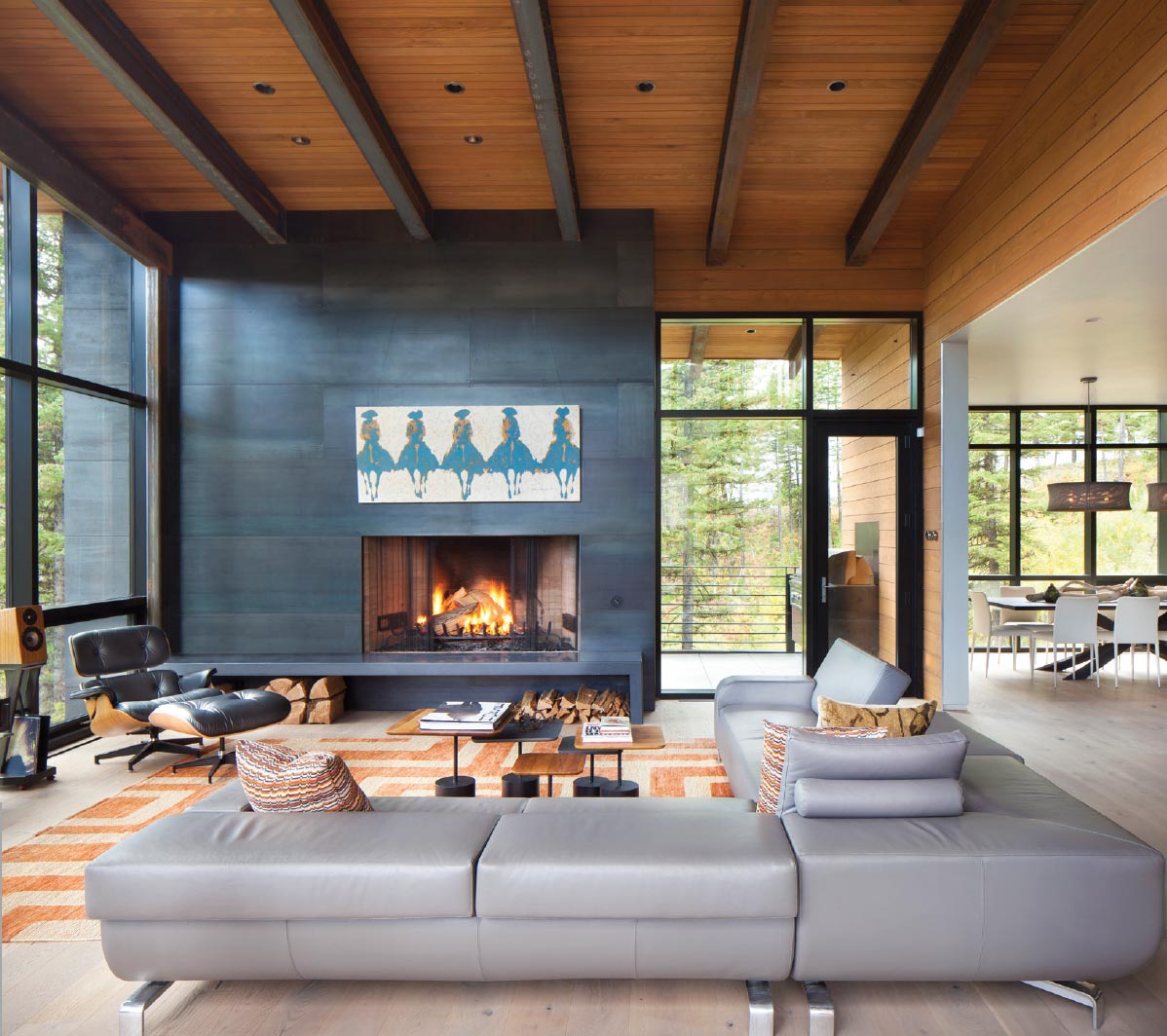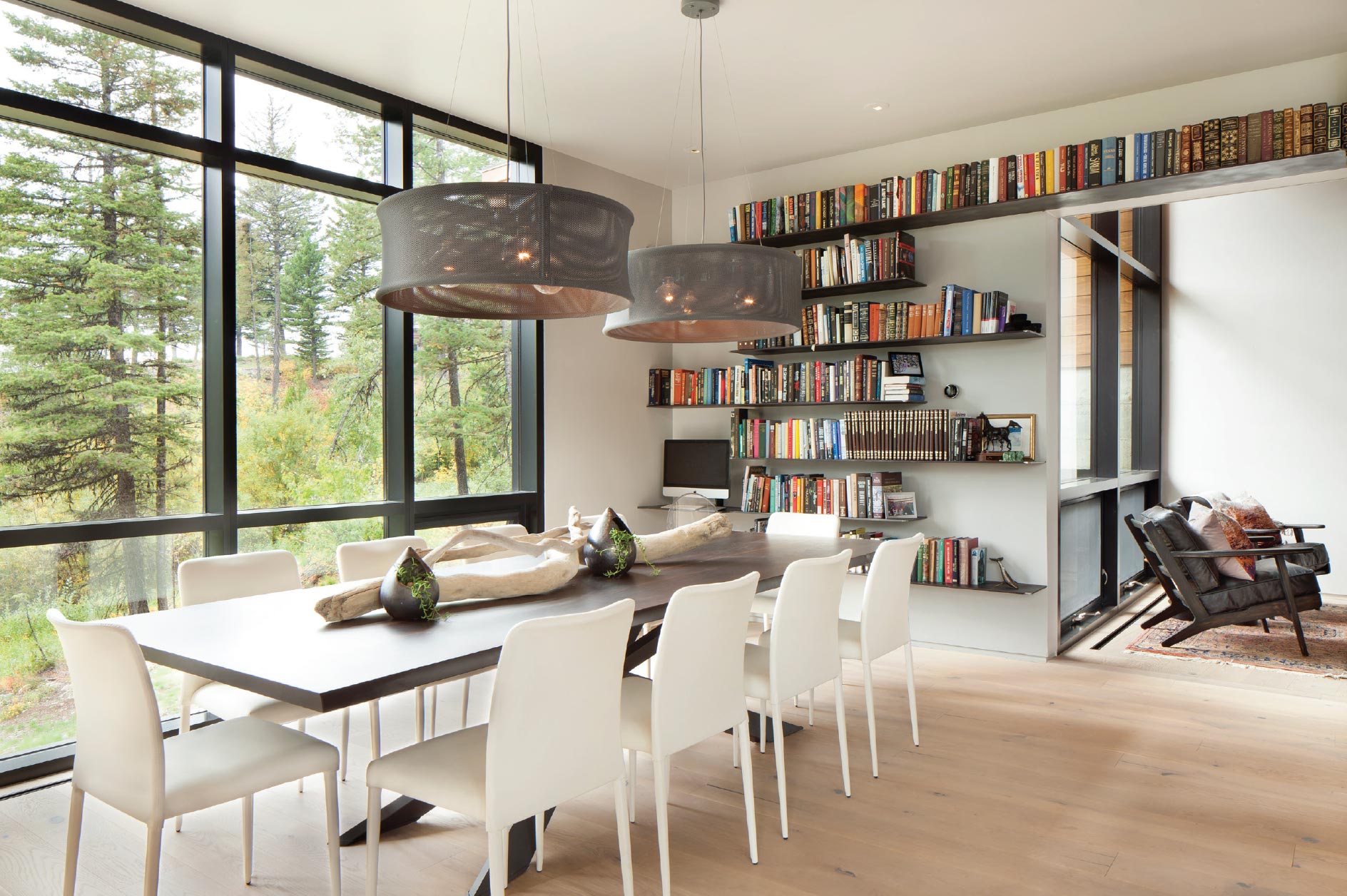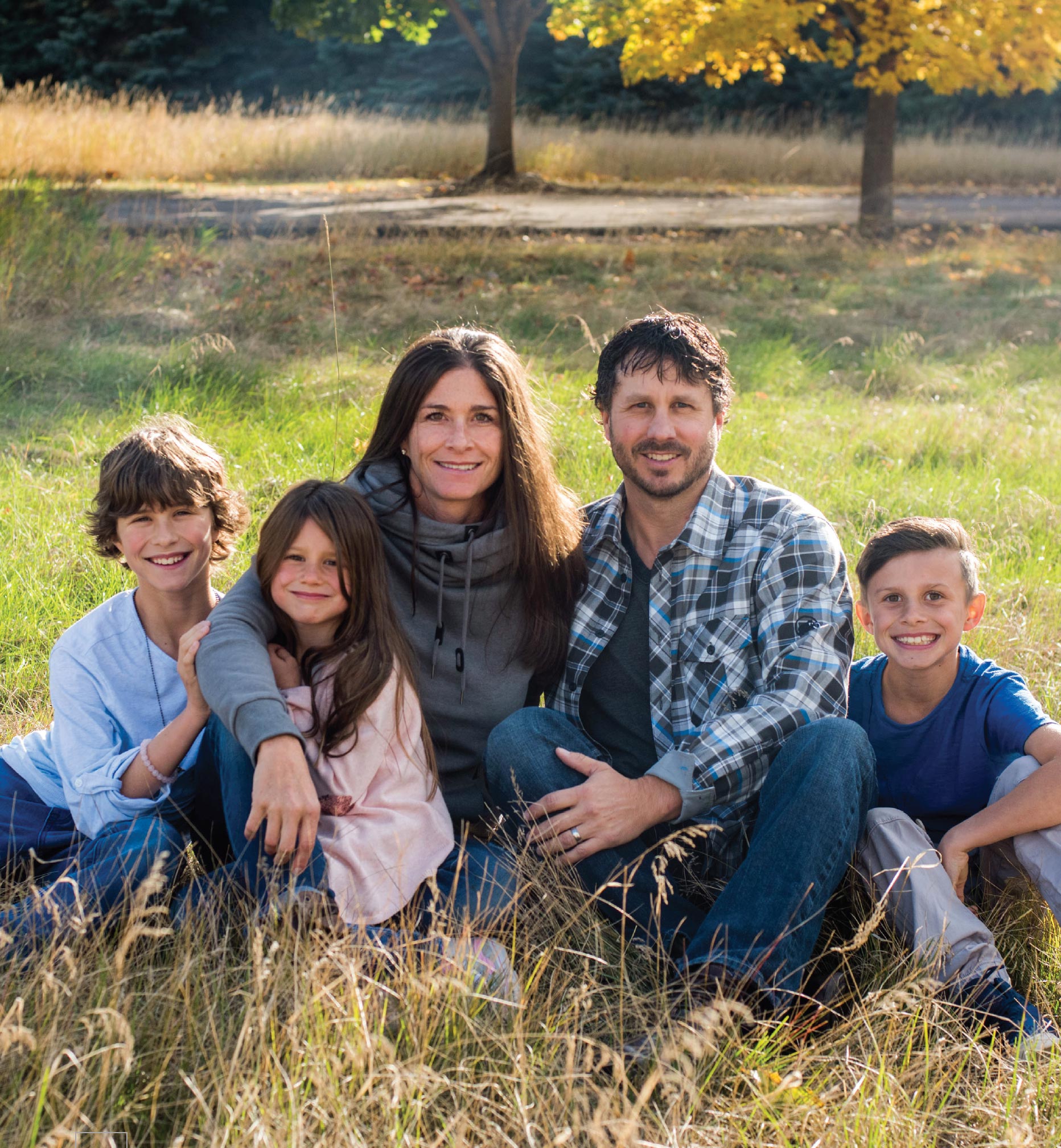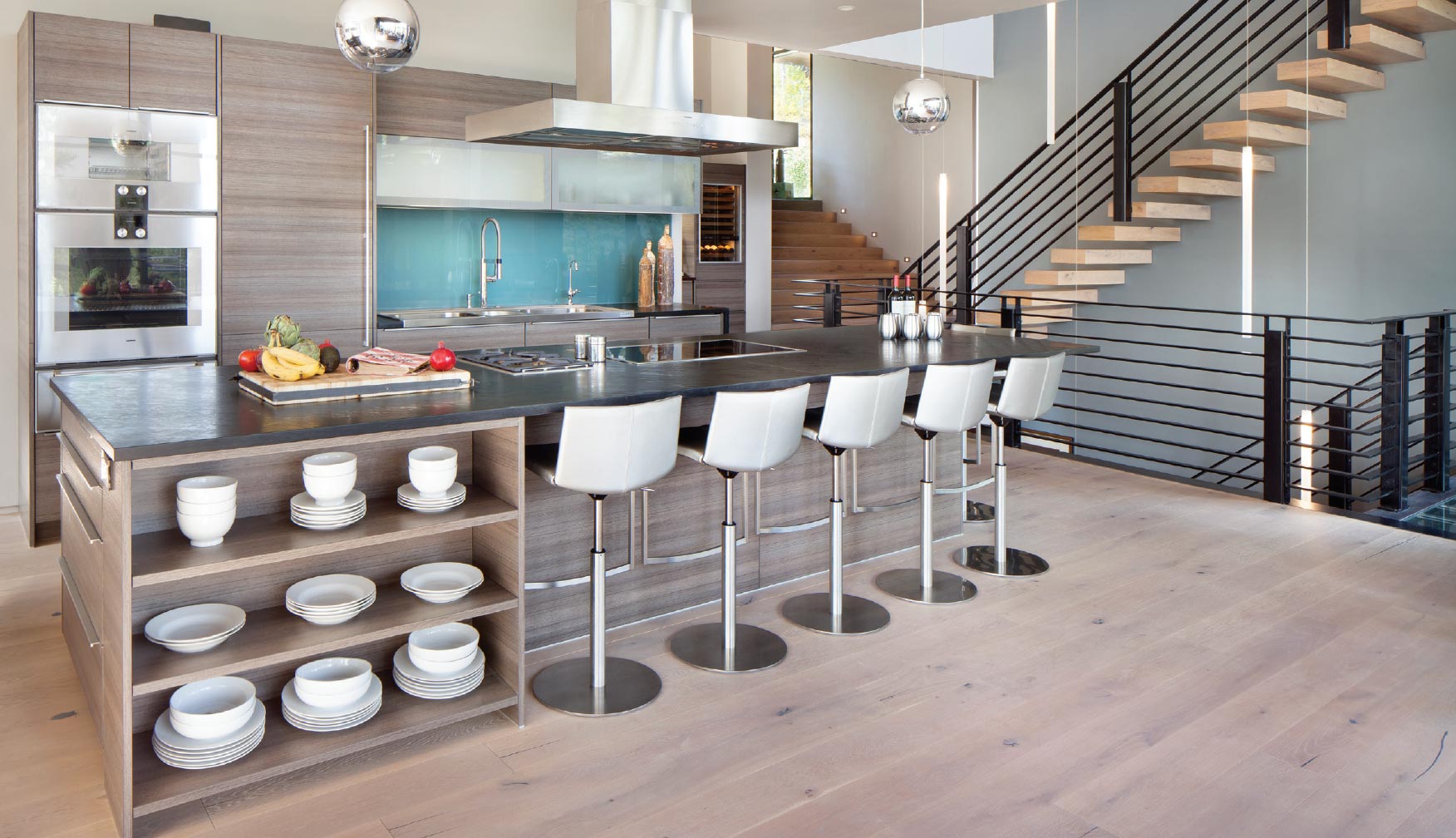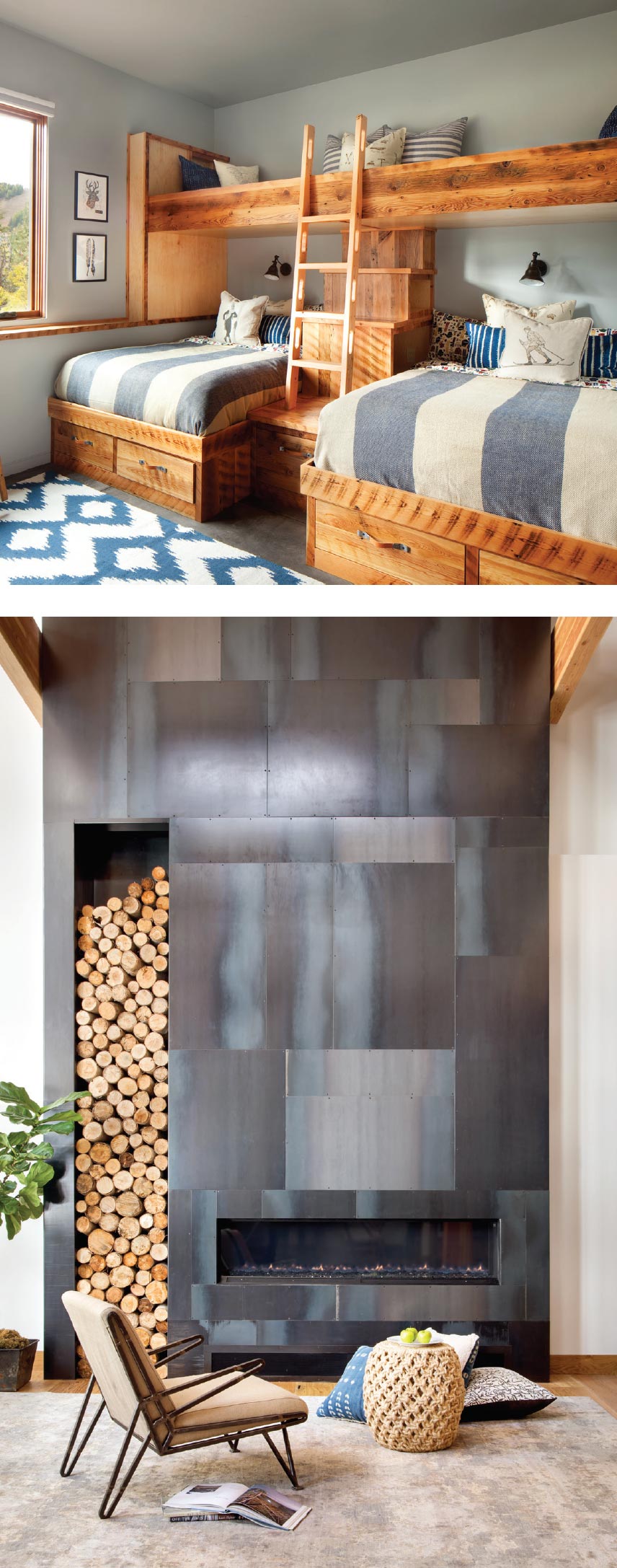Families working in business together have a long tradition that is evolving into new dynamic partnerships as they discover what it takes to work successfully together, both in the business world and at home.
While the Ma and Pa Corner Store is largely a thing of the past, that doesn’t mean there is a decline in family-owned and -operated businesses. On the contrary, family businesses continue to be important cornerstones of the economy, and that extends to the luxury home industry. Building upon the trust, communication, and core values fostered at home, families are creating businesses that rely not only on these commonalities but also upon each family member’s diverse talents, skills, and training.
90 percent of the nation’s businesses are family-owned or controlled. And family businesses provide half of the jobs in Europe and America.
Statistics speak to the importance of families in business together. According to the U.S. Census Bureau, 90 percent of the nation’s businesses are family-owned or controlled. And family businesses provide half of the jobs in Europe and America, according to Ernst & Young. Starting a family business is a daring thing to do, as during the early years family members sacrifice by working for free or at a lower rate than the external job market would pay for similar skills (Jennifer Xue, Silicone Valley Globe). However, as these local Flathead Valley businesses say, the rewards of working together are worth the challenges.
WHJ–FEATURED FLATHEAD VALLEY FAMILY BUSINESSES:
Hunter & Company
Interior Design
“My dad is a product of a generation of more artisans and craftsmen. I gained an appreciation for incorporating handcrafted and artist-made pieces in my designs.”
–Hunter Dominick, Hunter & Company Interior Design
The West lured Hunter Dominick first to the resort areas of Colorado and then to Whitefish, where she owns and operates Hunter & Company Interior Design and her furniture and accessory gallery. However, Hunter traces her creative roots and interest in design to her family roots in southwest Virginia and her father’s design business.
“Do what you love, and the rest will follow.” That’s the family message Hunter remembers hearing while growing up, and in many ways it has been the theme of her career. Hunter has always been creative and artistic. She paints, blows glass, and in all ways is a creative artist. One of her early childhood memories is trying to improve upon Scalamandré wallpaper with her colored markers. By the age of seven, Hunter knew she wanted to be an interior designer. “I was just passionate about art, but even then there must have been a streak of practicality,” she recalls. Also, she had the example of her parents.
Hunter describes her father, Mickey Nelson, as a designer who dares to take on unusual projects, projects like the interior of a railroad car. Mickey Nelson attended college first under a football scholarship, and then after he got injured, he transferred to Virginia Commonwealth University in Richmond and shifted his attention to the university’s design school, where he met and married another design student, Hunter’s mother, Nancy. Nancy went on to teach children, and Mickey opened his own design studio and showroom.
“In many ways, my dad’s studio was similarly outfitted to my own, with a showroom and resource library. His technical background brought his interior design closer to architecture, as does mine. I helped out and was constantly in and out of the business, and I have to say that it had a huge influence. You watch, and you learn. I saw how he managed to be creative in the confines of a business.”
“You watch, and you learn.”
–Hunter Dominick
Hunter was so eager to enter college and begin her design studies that she graduated from high school a year early and was accepted, after a rigorous application process, at Virginia Commonwealth University in the same program her parents attended and where they met. “It was a traditional and in-depth program where we had training on the ins and outs of construction, which has led to my specialty of interior architecture and construction management. I am much more prepared for understanding installations and a much stronger member of design and construction teams.”
Hunter finds that she may have entered design at an ideal time. “My dad is a product of a generation of more artisans and craftsmen. I gained an appreciation for incorporating handcrafted and artist-made pieces in my designs. Where I grew up, just north of the area in North Carolina where so many beautiful furnishings are made, many pieces are crafted traditionally and by hand. Through my dad’s influence and through my own education, I learned the old ways and trades, including the ability to hand-draw plans and sketches. But, I also learned to draw with computers and learned skills that are so difficult for earlier generations to master.”
Hunter Dominick arrived in Whitefish in 2000 and decided to start her design business. “Things then were very Montana rustic. I had seen a shift in Colorado to a more sophisticated elegant mountain look, and I showcased the work of local artists, pieces made in the USA, especially familiar furniture makers from North Carolina, and generally started bringing in new influences that I thought would enhance homes in this area, anticipating that design here would also shift.”
It’s a big step to start a business, but Hunter doesn’t recall ever being overwhelmed. “I really never thought that it wouldn’t work out. I started in a smaller location and made the next steps, in retrospect the right steps, to a larger office and the showroom.” Also in retrospect, Hunter sees influences from her father in her business. “There are some architects and designers who have a vision, and their attitude toward the client is ‘take it or leave it.’ My father’s approach is that all decisions are made specifically toward and because of the client. The client determines the platform, purpose, and reason. I follow his approach: I make all selections based on the client.” Interestingly, Hunter also finds that her taste is still very similar to her father’s. Other parental influences are at work, as well. Hunter describes her mother as a natural teacher, and many who know her and have worked with her will use the same description of Hunter as a down-to-earth natural teacher.
“My father’s approach is that all decisions are made specifically towards the client.”
–Hunter Dominick
One of the challenges of small, family-owned businesses is setting aside time for family away from work. Did her experiences growing up alter how she manages her home life and family? “I grew up where I didn’t sense any separation between work and family. I have young children, and they demand that I put work aside. Plus, I am so busy with their schedules, especially with ski racing. We downhill and cross-country ski, do a ton of camping, and I love to hike. I love being outside. The connection restores me and the natural world is the source of my design inspiration.”
Hunter and her dad have some crossover now between their businesses. Hunter has jobs on the East Coast and Virginia, and Mickey Nelson has projects in the Flathead Valley. Will there be more collaboration in the future? Hunter won’t rule out the possibility and says, “I always thought I would work with my dad.” Also, it’s too early to consider whether her children may want to follow her into the business, but they both are highly creative and have shown interest. However, Hunter stresses that whatever they do, it is important that they do something they love, just as she has. “I’m passionate about how space and color influences and affects people’s lives.”
And does Hunter have any advice for other families considering going into business together? “Go with your instincts and sign all your own checks,” she says with a laugh.
Bear Mountain Builders
“We built our own house together and did almost all the work ourselves from the foundation to finish. We quickly realized that we were good at contracting, and that we worked well together.”
–Tawnya Bingham, Bear Mountain Builders
Kelcey and Tawnya Bingham sum up their approach to working as “hands on and hearts in.” They are a husband and wife partnership and they own Bear Mountain Builders, a firm that is making its mark in the Flathead Valley with high-end, high-profile homes, as well as local family homes.
The dynamic, high-energy couple met when Tawnya, a fastpitch softball player, attended Western Washington University in Bellingham, Washington, on an athletic scholarship. Tawnya explains that after graduation, she worked in Ferndale, Washington, at the Conoco Phillips Refinery as an engineer, firefighter, and high-angle rescue technician, a highly specialized niche for EMTs respected for the extreme focus it requires as well as the inherent danger.
Kelcey attended the University of Washington, where he worked his way through college by operating his own painting, landscaping, and fence building company during the summers. “I grew up on a small farm and learned the value of hard work from my parents and extended family. My grandfather had built a large, successful electrical contracting company, and I spent a lot of time learning from him. I took this knowledge and applied it to starting up my own business,” Kelcey recalls.
Tawnya and Kelcey have a lot in common. Both were raised in small communities in Washington State where they were involved with competitive sports and athletics. Also, both worked summers for construction companies. However, it was when they built their own home that the idea of working together clicked. “We built our own house together and did almost all the work ourselves from the foundation to finish,” Tawnya recalls. “We quickly realized that we were good at contracting, and that we worked well together. We recognized that we were destined to own our own company. I think perhaps our competitive drive to succeed in sports helped us to excel in business later in life.”
That experience defines how they still work together today. Kelcey explains, “We learned from our first house that we both had certain strengths and weaknesses. It was a natural progression for us to divide up responsibilities. We decided that I would handle the structural aspects of getting the shell of the home completed and that Tawnya would take over on implementing the finishes. We would both remain closely connected to our clients throughout the process. In retrospect, I would say that strong communication has been a key to our success.”
“I would say that strong communication has been a key to our success.”
–Kelcey Bingham
For a while, the two built log and timber frame homes on the San Juan Islands and in the Cascades, but they soon recognized that they wanted to find a better place to live and raise their family. In 2001, they made the move and established Bear Mountain Builders in Whitefish.
“We knew that we wanted to raise our children in a small, tightly-knit community and that Whitefish was the perfect fit for our outdoor lifestyle,” Tawnya recalls. Kelcey adds, “It was definitely a gamble to leave the steady jobs that we had in Bellingham, Washington, and to move to Montana. We also understood that in order to make the transition, we would have to work together and work very hard to make our business a success. It was our initial hope that we could build enough homes each year to support our family without one of us getting a separate job. Our hard work paid off. It only took building our own home and one spec home to showcase our commitment to quality workmanship and value. We have been fortunate to have experienced growth every year since.”
By working for themselves, Tawnya and Kelcey have the opportunity to do business in a manner that feels right for them, which is consistent with their family principles. “We were both raised in families that understood the value of a promise, the necessity of hard work, and the bond of a handshake. We take great pride in fulfilling these principles at Bear Mountain Builders and teaching them to our children,” says Kelcey.
The Binghams’ style of running their family business fits well with their clients’ needs. Tawnya comments, “As a family business, our clients get the benefit of two perspectives to aid in the decision-making process. Plus, with the two of us, there’s an additional set of eyes on the project. As a couple ourselves, we understand the stress that building a home can have on a marriage. Our strong communication, organized process, and our team of incredible craftsmen help alleviate that stress. Our clients know that we will treat the construction of their home as if it were our own, and that we stand behind that promise!”
“As a couple ourselves, we understand the stress that building a home can have on a marriage.”
–Tawnya Bingham
What has working so closely together taught them? Kelcey answers, “Certainly, we take each day as a blessing and we value the extra time we get to be together. We learn new things, and we remind each other what is important in life. We are constantly searching for new products and construction systems. We have learned that you must remain innovative to be competitive and successful in this industry, and our working relationship reinforces this.”
The Binghams have also learned about the importance of drawing healthy boundaries between work and family, especially now that they have children. “Our advice for other couples who plan on working together is that they should set parameters on discussing work issues at home. Our rule is to focus only on family after 6:00pm and not to discuss work before coffee in the morning,” says Tawnya.
Kelcey notes that while their lives may be centered on work, they take time to enjoy themselves. “We definitely follow the adage to both work hard and play hard,” he says. Summer finds the family outdoors enjoying the incredible Montana scenery while river rafting and camping. In the winter they take advantage of the abundant snow and ski on weekends. “We have a traditional family outing of night skiing at Friday Nights Under the Lights,” Kelcey says, sounding like someone who has found his perfect home in the Flathead Valley.

